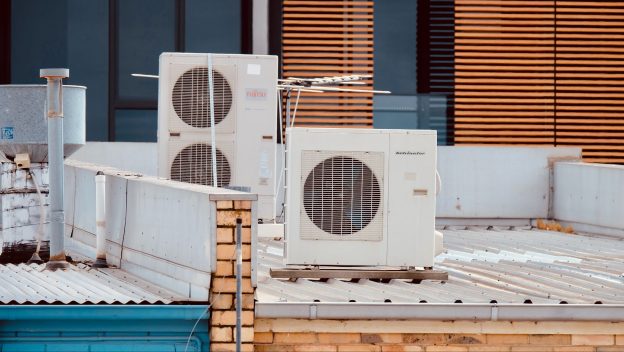What is a Ducted AC or Heater System?
Which is better? Ducted air conditioners or other types of HVAC systems? This is a common question in this area of residential and commercial property maintenance. In this guide, you’ll find all the information you need to come to a sensible conclusion for your property!
As the name suggests, a ducted AC or heater system utilises a system of ducts to transport air to different locations in the property. Of course, this air is either cooled or heated depending on the desires of the property owner. During the winter, you’ll want to deliver hot air around the home rather than cooled air. During the summer, you will have opposite ambitions.
In terms of logistics, everything starts with a central unit. This central unit either heats or cools the air depending on the setting. From here, the air is circulated around the property using the duct system.
Drawbacks and Advantages
Before addressing potential alternatives, the biggest benefit of a ducted air conditioner and heater system is that you control the temperature of your home. With modern advancements in ducted systems, you can also heat or cool certain rooms (this prevents heating or cooling rooms that aren’t being used!). Why heat the spare room when nobody will use it on a given day? This only increases your energy bills for no reason.
Furthermore, ducted air conditioners and heaters tend to be more discrete in terms of design than traditional air conditioner units. Although the final positioning depends on your property, it can often go behind a wall or even in the ceiling – you don’t have an eyesore in your property.
Finally, ducted air conditioners and heaters are quieter than many other systems (including portable fans and other systems). If this is a problem with your current system, changing to a ducted system can reduce the noise in your property.
On the other hand, it’s a complex system and one that causes headaches for many property owners. Due to the complexity, your property may not be able to accommodate a ducted system. What’s more, you may not be able to accommodate the unit itself. Before getting too excited about this proposition, it’s best to speak to a professional to check the viability of this option for your property.
Other Types of HVAC Systems
Most commonly, you might see some homes with a split system – this is where both outdoor and indoor units are used. Connected with copper tubing, split systems are easy to maintain, smaller than traditional units, quiet (the indoor units), and efficient (important for those seeking green solutions).
Sadly, a split system is complex and will therefore cost more than a traditional HVAC system. Additionally, you need to think carefully about the location of the two units because they need to be within 30 metres of each other. Also, others have had problems with the noise of the outdoor unit and the installation process.
As you can see in the subheading to this section, these systems are also called ductless systems because they don’t require a complex network of ducts throughout the property. As we saw with ducted systems, they allow for versatility and customisability. It’s easier to get zone control with a ductless system; while it is possible with a ducted system, you’ll need ducts and outlet vents in each area.
When speaking to an air conditioning company in Perth WA, talk through your type of property and your options when it comes to HVAC systems. As companies invest more money on developing new systems, you’ll find the following:
- Ducted
- Ductless
- Split systems
- Hybrid systems
- Packaged heating and air conditioning
Choose the right solution for your property!

